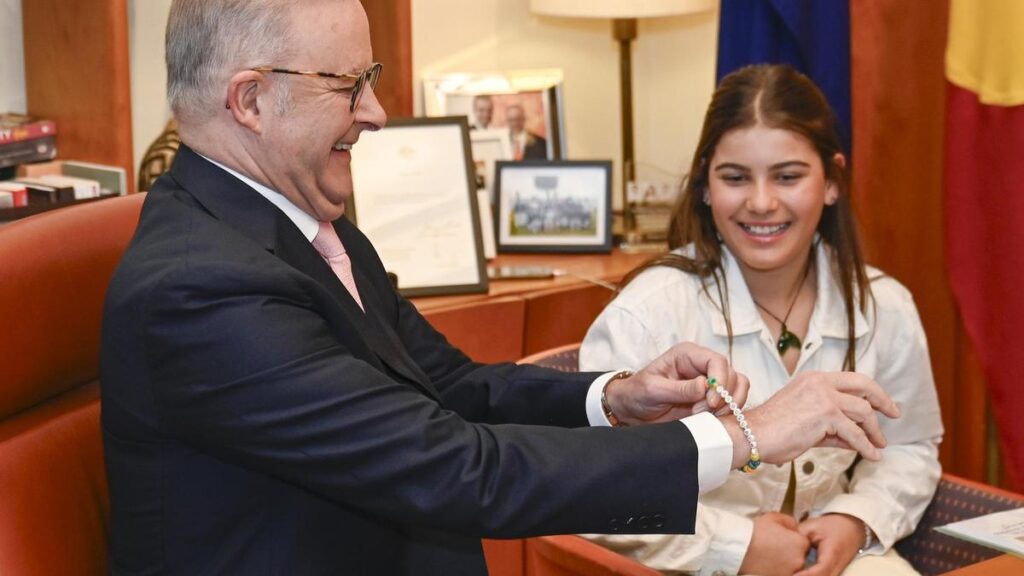
URGENT UPDATE: Australian Prime Minister Anthony Albanese has just praised 12-year-old advocate Flossie Brodribb, showcasing a new friendship bracelet she gifted him during a meeting in Canberra. Flossie is at the forefront of the government’s imminent ban on social media for children under the age of 16, a move Albanese describes as “inspiring” and crucial for the well-being of Australian youth.
During the pivotal meeting on October 26, 2023, Flossie, alongside her mother Romany Brodribb and neuroscientist Dr. Lila Landowski, discussed the significant impacts of social media on childhood development. Albanese emphasized the importance of getting children “offline and into life,” underscoring the urgent need for this legislative action.
The ban, which will take effect on December 10, 2024, mandates that tech platforms verify the ages of their users, denying access to those under 16. Major social media platforms, including Facebook, Instagram, TikTok, and Snapchat, are included in this sweeping legislation. Companies failing to comply face hefty fines of up to $49.5 million.
Albanese stated, “This is a social change backed by both sides of this parliament.” He acknowledged the role of parents and young advocates like Flossie in prompting this change, highlighting the need for children to engage in real-life activities such as sports, music, and reading instead of being consumed by screens.
The Prime Minister’s remarks came during Question Time, where he noted the widespread concern from psychologists and parents over social media’s grip on children. “We’ve lost the power to parent,” Karen Robertson, vice-president of the Australian Parents Council, stated at a prior hearing, emphasizing the need for immediate reform.
Albanese reaffirmed that this initiative was not a government imposition but a community-driven demand for responsibility from social media companies. “This is the community demanding an appropriate government response,” he explained.
Communications Minister Anika Wells added that while the new laws may not guarantee perfection, they will result in “significant and meaningful change” for 13- to 16-year-olds. Alarmingly, data shows that 70% of young Australians have encountered harmful content online, a statistic Wells described as “too horrifying to ignore.”
As the December deadline approaches, all eyes are on the implementation of this landmark legislation. The government’s commitment to prioritizing children’s mental health and development over tech profits is a significant shift in policy, one that advocates hope will reshape the digital landscape for future generations.
Stay tuned for further updates on this developing story as the community rallies behind this critical initiative.





